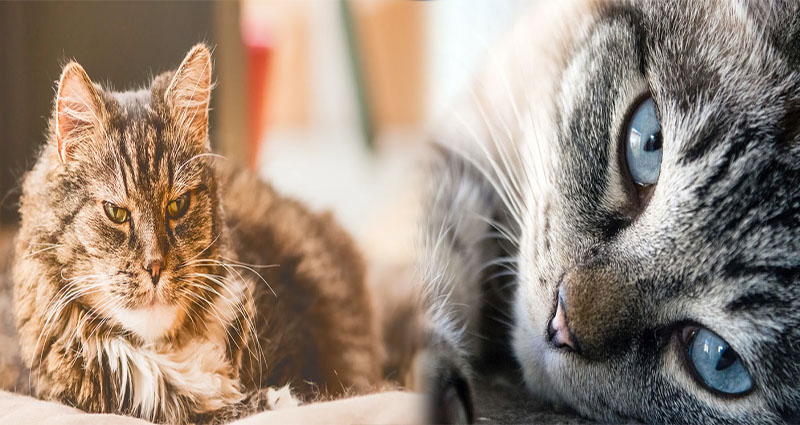As our feline companions age, they become more susceptible to certain health issues. Senior cats require extra attention and care to ensure their well-being and comfort. In this article, we will explore some common health problems that affect senior cats and discuss their treatments to help you provide the best possible care for your beloved feline friend.
1. Arthritis and Joint Pain
Arthritis is a common condition in older cats that causes inflammation and stiffness in the joints. Symptoms may include limping, difficulty jumping, decreased activity, and decreased appetite. Treatment options include pain medication prescribed by a veterinarian, joint supplements like glucosamine and chondroitin, and providing a warm and comfortable environment for your cat to rest.
2. Dental Disease
Senior cats often develop dental issues such as periodontal disease, tooth decay, and gum disease. These problems can lead to pain, difficulty eating, and even systemic health issues. Regular dental care, including professional cleanings under anesthesia, is essential. Additionally, brushing your cat’s teeth regularly and providing dental treats or toys can help maintain oral health.
3. Kidney Disease
Chronic kidney disease is prevalent among senior cats and can significantly impact their quality of life. Symptoms may include increased thirst, frequent urination, weight loss, and a decrease in appetite. Treatment often involves a combination of special renal diets, medication to manage blood pressure and kidney function, and giving subcutaneous fluids to help maintain hydration.
4. Hyperthyroidism
Hyperthyroidism occurs when the thyroid gland produces excessive thyroid hormones, leading to weight loss, increased appetite, restlessness, and sometimes heart problems. Treatment options include medication to regulate hormone levels, radioactive iodine therapy, or surgical removal of the thyroid gland. Regular monitoring of thyroid levels is essential to adjust treatment as needed.
5. Diabetes
Senior cats are prone to developing diabetes, which impacts their ability to regulate blood sugar levels. Symptoms may include increased thirst, frequent urination, weight loss, and changes in appetite. Treatment typically involves administering insulin injections and managing a controlled diet. It’s important to work closely with a veterinarian to establish an appropriate treatment plan.
6. Obesity
Weight gain and obesity are common problems in senior cats and can contribute to various health issues such as diabetes, arthritis, and heart disease. Managing your cat’s weight through portion control, a balanced diet, and regular exercise is vital. Consult your veterinarian for guidance on appropriate feeding habits and weight management strategies.
7. Cognitive Dysfunction
Senior cats may experience cognitive decline, similar to dementia in humans. Symptoms can include disorientation, pacing, confusion, and changes in sleep patterns. While there is no cure for cognitive dysfunction, certain medications and supplements may help manage the symptoms. Additionally, providing a stimulating environment and maintaining a consistent routine can support cognitive function.
As our feline companions age, they require extra care and attention to ensure their health and well-being. By being aware of common health problems such as arthritis, dental disease, kidney disease, hyperthyroidism, diabetes, obesity, and cognitive dysfunction, you can monitor your senior cat’s health and seek appropriate treatment. Remember to consult your veterinarian for proper diagnosis, treatment options, and preventative measures. With proper care and management, you can help your senior cat live a happy, comfortable, and fulfilling life.












